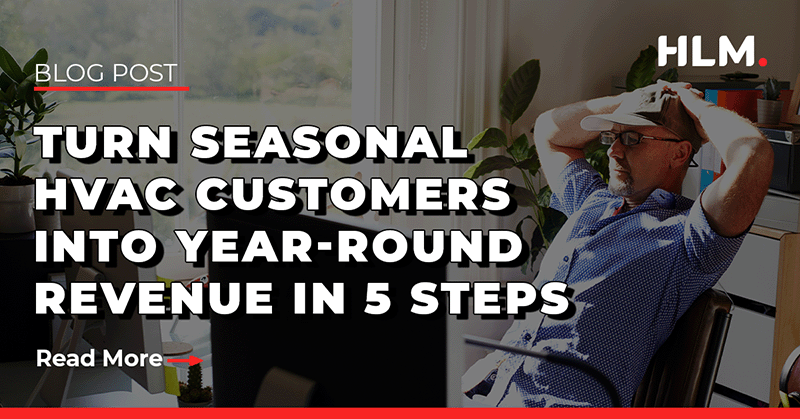11 min read
12 Essential Digital Marketing Tips to Grow Your Business in 2023
![]() By Regina Marsden-Crupe
Dec 29, 2022 2:46:00 PM
By Regina Marsden-Crupe
Dec 29, 2022 2:46:00 PM

Are you looking for the best digital marketing tips to grow your business in 2023?
In a world where digital marketing is becoming increasingly important, it can be difficult to keep up with the latest trends and strategies. But, having a plan in place can help you stay ahead of the competition and make the most of your marketing efforts.
With this in mind, here are 12 essential digital marketing tips to help you get the most out of your marketing efforts in the coming year. From SEO to your website, these tips will help you maximize your reach. So, whether you’re just starting out or an experienced digital marketer, this blog will help you work smarter.
Digital Marketing Tip #1: Does your website have sticky headers?
Give your website visitors a great user experience by implementing sticky headers.
What’s a sticky header?
A sticky header is a fixed header on your website. Also called persistent headers, it’s a website menu that stays at the top of your webpage and remains visible as a user scrolls down the page.
It keeps the visitor’s attention on the most important elements of the page and helps guide them by providing quick access to key information including other pages on your website, your phone number, and calls to actions (CTAs) such as “schedule an appointment” or “contact now.” Sticky headers help engagement and encourage users to stay on your site longer. This can also increase your conversion rates by encouraging users to take action in order to view more information.
It seems like a simple thing, but with today’s short attention spans, it's in your best interest to make it as easy as possible for someone to find the information they need and to contact you as they're browsing your website.
Digital Marketing Tip #2: Why your website may be slower than you think
How fast does your website load? Does it “feel” fast? Your website may load slower than you think, especially if you haven’t checked it lately using a website speed test tool.
What affects website load speed?
Factors that can affect the load speed of a website include:
- The size of the website's files: If a website has large files such as images, videos, or scripts, it will take longer to load.
- The complexity of the website: A website with a lot of content and features will take longer to load than a simple website with just a few pages.
- The website's code: Poorly written code can cause a website to load slowly.
- The server response time: The time it takes for the server to send the first byte of data to the browser can affect the overall load time of the website.
- The use of third-party scripts: If a website uses a lot of third-party scripts, such as ads or social media widgets, it can slow down the load time.
- The quality of the hosting: A website hosted on a slow or overloaded server will take longer to load than a website hosted on a fast and reliable server.
By optimizing these factors, it’s possible to improve the load speed of your website.
Why is website load speed important?
Website load speed is important for a number of reasons:
- User experience: Users expect websites to load quickly, and if a website takes too long to load, they’re likely to become frustrated and may leave the site. This can lead to a high bounce rate, which means that users visit the site and then quickly leave, rather than engaging with the content. Google has measured that 53% of visits are abandoned if a mobile site takes longer than 3 seconds to load.
- SEO: Search engines, like Google, use website load speed as a ranking factor in their search results. This means that a slower loading website may rank lower in the search results, which can negatively impact the visibility and traffic to the site.
- Conversion rate: A faster loading website can lead to a better user experience, which can lead to increased conversion rates. This is especially important for e-commerce websites, where a slow loading time can result in lost sales.
- Mobile device performance: With the increasing number of users accessing the internet on mobile devices, it’s important for websites to load quickly on these devices. Mobile users may have slower internet connections and may be using less powerful devices, so a fast loading website is even more important for these users.
Where can you test your website speed?
There are a multitude of website performance tools so it can be hard to choose which one is best to use. The website speed test from Dotcom-Tools enables users to test their web pages for free and from up to three worldwide locations.
Here are additional tools that you can use to test the speed of a website:
- Google PageSpeed Insights: This is a free tool provided by Google that analyzes the performance of a website and provides recommendations for improvement. You can use it by entering the URL of the website you want to test and it will provide a score and specific recommendations for improvement.
- GTmetrix: This is a free tool that provides a detailed analysis of the performance of a website, including the loading time of each element on the page and recommendations for improvement.
- WebPageTest: This is an open-source tool that allows you to test the performance of a website from multiple locations around the world. It provides detailed information about the loading time of each element on the page and recommendations for improvement.
- Pingdom: This is a paid tool that allows you to test the performance of a website from multiple locations around the world. It provides detailed information about the loading time of each element on the page, as well as recommendations for improvement.
Because website speed can be affected by various factors, it’s recommended to test your site from multiple locations and under different conditions to get a more accurate picture of its performance.
Digital Marketing Tip #3: Why you should check your website on a mobile device that isn't yours
Did you know that the majority of internet traffic occurs from a smartphone or other mobile device?
Checking your website speed on a mobile device other than your own is important so that you can evaluate how your site loads and performs on mobile:
- More and more people are using their smartphones to access the internet, so it's important to ensure that your website is optimized for mobile devices. Year-over-year, mobile internet traffic has increased to almost 60% and around 9 in 10 (92.1%) users access the internet using a mobile device.
- A website that isn’t optimized for mobile devices can be difficult to navigate and use, leading to a poor user experience that drives visitors away.
Checking your website on a mobile device that isn’t your own is crucial. By doing this, you're able to see - and assess - the mobile version “fresh” (not cached or stored). This helps you to quickly identify any potential issues and make the necessary improvements to help your site’s performance and search ranking.
Digital Marketing Tip # 4: Is your website mobile-friendly first?
If your website isn’t designed to be easily viewed and navigated on a small screen, users may have a difficult time accessing and interacting with your website, creating a poor user experience and leading to a higher bounce rate. Poor user experience and high bounce rates also negatively impact your search engine rankings.
Because of this, Google now gives more importance to how your website performs on mobile devices first using mobile-first indexing as a primary ranking factor for search results.
This means that if your website isn’t mobile-friendly, it may rank lower in search results. The better your website performs on mobile devices, the better you show up in search results! By checking your website on a mobile device, you're looking at the version of your website that Google weighs first compared to how your website performs on desktops and laptops.
Overall, it’s important to have a website that is optimized for both desktop and mobile devices in order to provide the best user experience and rank well in search results on both types of devices.
Digital Marketing Tip #5: How old is the internet and how has it changed digital marketing?
The internet has had a significant impact on digital marketing by providing new channels for businesses to reach and engage with their customers. Some of the ways in which the internet has changed digital marketing include:
- Increased reach: The internet has allowed businesses to reach a larger audience. This has made it easier for businesses to target specific demographics and reach customers in geographic areas.
- Personalization: The internet has also made it easier for businesses to personalize their marketing efforts and tailor their messaging to specific segments of their audience. This can be done through the use of tracking technologies that allow businesses to recognize their customers' online behavior and interests.
- New channels and platforms: The internet has also introduced new channels and platforms for businesses to reach their customers, such as social media, email marketing, and mobile apps. These channels have provided new opportunities for businesses to engage with and build relationships with customers.
The internet has greatly expanded the scope and reach of digital marketing, and it has become an essential tool for businesses to connect with their customers, increase their online presence, and convert leads into new customers.
Digital Marketing Tip # 6: Should my website have a FAQ page?
We get asked Frequently - Should my website have a FAQ page?
A: If it doesn’t - it probably should!
A FAQ (Frequently Asked Questions) page on your website provides quick and easy access to information that is commonly sought by your website's visitors. A FAQ page can be a useful tool as it allows visitors to find answers to their questions on their own and can help your business:
- Provide a good user experience and answer common questions your website visitors may have.
- Potentially qualify or dis-qualify leads and prospects, saving you valuable time.
- FAQ pages include special code, called “Schema Markup,” that can give you extra real estate space on google, demonstrating your expertise and increasing your online visibility.
- A FAQ page is also beneficial for SEO by helping your website rank higher in search results.
FAQ pages help demonstrate the value and relevance of your website to search engines, as it shows you have taken the time to anticipate and address the needs of your audience.
Digital Marketing Jake’s Tip # 7: Why your website needs location pages
If you’re a business that serves local customers and clients, then you need to do everything you can to let Google and other search engines know where you’re located.
This includes making sure your online directory listings are correct and you have better Google Reviews than the competition. Here are several additional reasons why it’s beneficial for your website to have dedicated location pages:
- Improved SEO: Having location-specific pages helps your website rank higher in search results for location-based queries. For example, if your business has multiple locations and you have a page for each location, it can help your website rank higher in search results for queries related to those specific locations.
- Increased credibility: Having location pages can help establish your business as a local presence and increase credibility with potential customers.
- Improved user experience: Location pages can provide users with important information about your business, such as your address, phone number, and hours of operation.
- Improved local search visibility: By having location pages, your business can be more easily found by users searching for businesses in specific areas. This can be especially important for businesses with multiple locations or for businesses that serve customers in multiple locations.
Location pages help increase the visibility and credibility of your business, and can also improve the user experience for your website visitors. Pages that have content relevant to a physical location information in the URL help you show up better in local search results.
Digital Marketing Tip #8: Why your website needs service pages
If your business provides services and solutions, then you need to do everything you can to let search engines know what you offer! Additionally, having the name of your service or offering in the URL of a page can give Google additional insight into what you’re all about. Your website should have dedicated pages to provide useful information to your visitors about how your business solves your customer’s problems.
Your services page on your website is beneficial for a number of reasons:
- It helps potential customers understand what your business does and the types of services you offer. This can be especially useful for businesses that offer a wide range of services, as it allows customers to easily find the information they need.
- It allows you to highlight your expertise and experience in specific areas, which can help build trust and credibility with potential customers.
- It can help improve your SEO by providing additional content for search engines to crawl and index. This can help increase the visibility of your website in search results, making it more likely that potential customers will find your business when searching for the types of services you offer.
- It provides a dedicated space for you to explain the details and benefits of your services, which can help convince potential customers to choose your business over competitors.
Having dedicated service pages with quality content optimized for SEO will help your website show up better online, higher in search results, and bring you more business.
Digital Marketing Tip #9: Why written website content is STILL so important
You may have heard the phrase “content is king” quite frequently. But is this still true?
Content helps inform and engage your website visitors. It's the way consumers prefer to research and learn about companies today. The content throughout your website needs to be helpful and relevant to visitors searching for the services you provide. Good website content can help to establish the site's credibility and authority on a subject, and can also help to build trust with visitors. Additionally, well-written and informative content can help to keep visitors on the website longer, increasing the chances that they will take a desired action, such as filling out a form.
It’s important to have a mix of different types of content on a website in order to keep visitors engaged and interested. This can include text that provides information and context, images and videos that help to illustrate points or demonstrate products, and interactive elements. The specific type of content that is most effective will depend on the goals of the website and the audience it’s trying to reach.
Further, written website content is a critical factor in SEO. To best rank in search, your content needs to be written with first with users in mind and also Google as one of the ways Google decides how your website ranks in search is by evaluating the value of written content on your website.
Overall, good content is a key component of a successful website, as it helps to attract and retain visitors, and ultimately helps to achieve the goals of the website.
Digital Marketing Tip #10: Are your phone numbers in the right place on your website?
For potential customers and clients to contact you, your telephone number on your website needs to be as easy for your visitors to use as possible. It needs to be visible all the time, regardless of what page a visitor is on, and it needs to remain visible as the user scrolls, which is why a sticky header is important.
Also, make sure someone viewing your website on a smartphone has the ability to "click-to-call" or the ability to place a call just by touching the number. This requires your website to be coded correctly!
Digital Marketing Tip #11: Why you need Google Map Pack
99% of consumers surveyed by Brightlocal used the internet to find local businesses in the last year. Google Maps provides a HUGE benefit not only to users looking for businesses, but also for businesses looking to attract customers. It’s one of the best - but often overlooked - SEO strategies to drive local traffic to your business.
Google Map Pack listing can help improve the visibility and credibility of your business, and make it easier for potential customers to find and visit your website:
- Visibility: Google Map Pack appears at the top of the search results page when users search for local businesses. This means that your business will be more visible to potential customers searching for businesses like yours in your area.
- Credibility: Having a Google Map Pack listing can help establish your business as a legitimate and trustworthy local business.
- User experience: Google Map Pack provides users with important information about your business, such as your location, hours of operation, and reviews. This can help users make informed decisions about whether to visit your business.
- Local SEO: Google Map Pack is an important factor in local search engine optimization (SEO). Having a listing in Google Map Pack can help improve your ranking in local search results, which can drive more traffic to your website.
- Mobile optimization: Google Map Pack is particularly useful for mobile users, who may be looking for businesses while on the go. Having a listing in Google Map Pack can make it easier for mobile users to find and visit your business.
The Map Pack section is a highly-sought after section of google to appear on, because it makes it easy for potential customers to choose you as a solution for their needs. Appearing in the Map Pack requires consistent SEO, the generation of positive Google Reviews, and more, depending on how competitive your local market is.
Digital Marketing Tip #12: What exactly is digital marketing? And how can it help your business grow?
Even though we live in a digital world, the term “digital marketing” can mean different things to different people.
In today's digital age, customers expect businesses to have an online presence, and digital marketing helps businesses meet that expectation. Digital marketing is important because it allows businesses to reach and engage with customers where they spend so much of their time: online. It also provides a more cost-effective and measurable way to reach more customers than traditional marketing methods. It also enables businesses to target specific groups of customers, track the effectiveness of their marketing efforts, and make adjustments as needed in real-time.
Digital marketing is a crucial part of any business marketing strategy, as it helps companies reach and engage with their customers, generate leads, and drive sales.
When HLM helps companies gain new business through digital marketing, we're usually providing services that consist of SEO, online ads, blog writing, website design, and overall digital strategy.
While every business and industry is unique, we’ve found these tactics are the most important items for bringing in new leads and customers and helping businesses grow!
Need help with your 2023 digital marketing? Not sure where to start?
Don't go it alone - Book your complimentary digital marketing consultation with Jake:
Book My Meeting →
Author: Regina Marsden-Crupe
Contact Us NowRecent Posts
When you're done with this post, check out our other content below for more Digital Marketing expertise
Contact Us Today
Complete the form below and receive a call within minutes.
Need faster results? Call us now at (888) 717-4249





